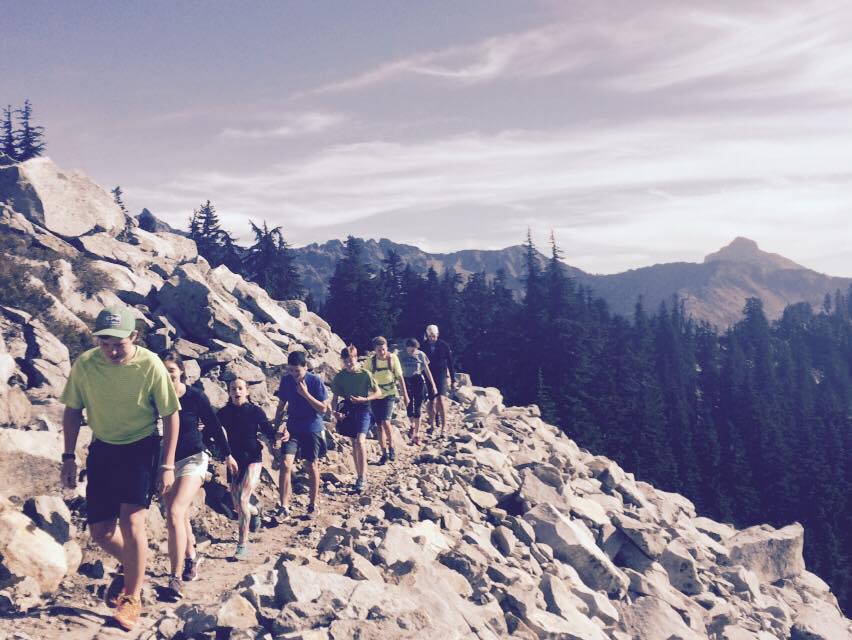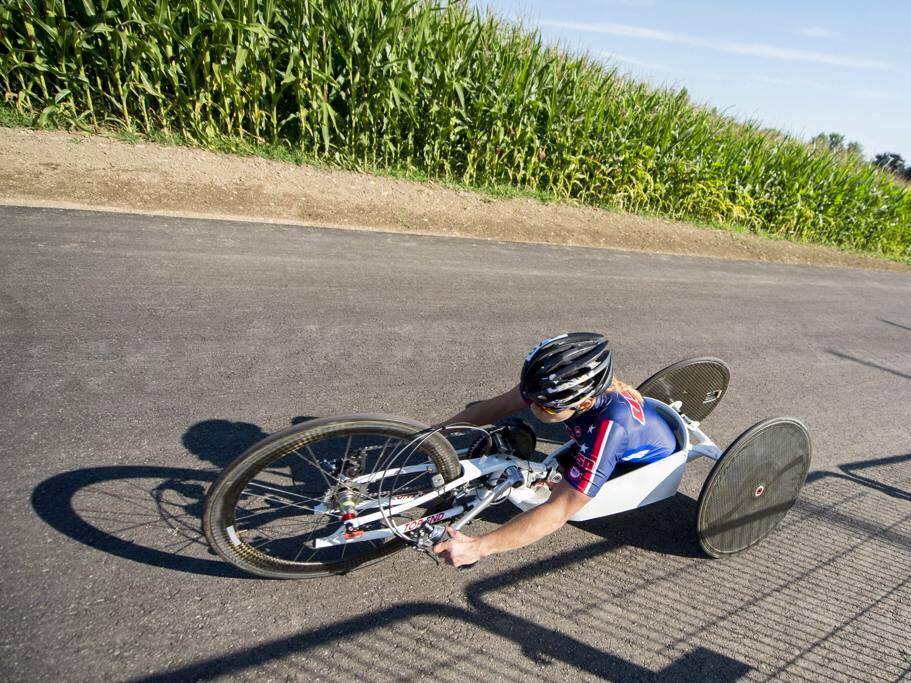
Not many individuals have the opportunity to represent the U.S. at the Olympics. Even fewer have had the opportunity to do so three times. And fewer still in three different sports. By the closing ceremony of this year’s 2016 Summer Paralympics in Rio de Janerio, which kick off Sept. 7, U.S. Paralympic rower-turned-skier-turned-cyclist Oksana Masters will have accomplished all of the above and potentially podium in all three sports.
The road to Rio for Masters, however, was not like the smooth paved streets she now occasionally finds herself cycling on as she preps for the 2016 Paralympic games. Born in Ukraine with birth defects believed to have been caused by Chernobyl, Masters spent the first 7 1/2 years of her life in several orphanages before being adopted by Gay Masters, an American speech pathologist. At the time of her adoption, Masters was severely underweight. Gay brought the malnourished child back to the U.S. and moved to Louisville, Ky., when Masters was a teenager, according to the Associated Press.
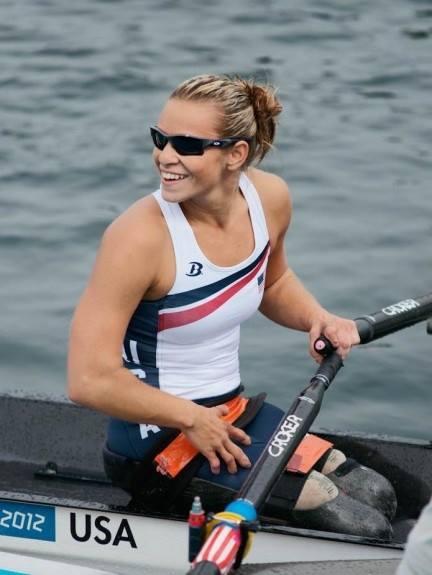
In the years that followed, Masters didn’t just adapt, she thrived. She began competing seriously in rowing and in 2012, qualified for the London Summer Paralympics, where she and her U.S. teammate Rob Jones took bronze in the trunk-and-arms mixed double sculls. That same year she was featured in ESPN The Magazine’s Body Issue. Also in 2012, she was also approached by one of the coaches for the U.S. Paralympic Nordic Ski team.
While rowing had been a part of her life for 11 years, due to issues with her back, Masters decided to trade in her oars for skis in 2013. She took up sit skiing, and the 2014 Winter Games in Sochi, Russia, became her new focus.
By the end of the 2013/2014 ski season, Masters not only qualified for Sochi in cross-country skiing and biathlon, she came away with two medals: silver in the 12-kilometer cross-country and bronze in the 5 k cross-country sit-ski events. There in Sochi, the notion of cycling first crossed her mind.
“One of our teammates for the U.S., she was a sit skier, her summer sport was hand cycling and she really liked the tradeoff [between skiing and cycling],” Masters, now 27, explained in a recent phone interview from Champagne, Ill. “I originally would be doing rowing, but my body is not able to do that motion right now and I wanted to maintain a fitness level and she spoke really highly of [cycling].”
By the end of the winter, Masters decided to give cycling a try. With only a couple months of training under her belt, she qualified for the 2014 UCI Para-cycling Road World Championship team and raced to fourth place in both the road race and time trial. After another successful ski season, she spent all of last summer cycling and once again qualified for the 2015 UCI Para-cycling Road World Championships and took bronze in the H5 road race. Eventually, what began as just a way of staying in shape for skiing became her third Paralympic sport.
“One of the things I was lacking in skiing was race tactics and how to race,” Masters said. “Rowing didn’t have any of that because you’re in your own lane and you can just put your head down and hammer home. Skiing, there’s a lot more to it than going hard. So cycling was kind of like a way to stay in shape in the summer and learn more about racing. Then it just somehow led into going to Rio.”
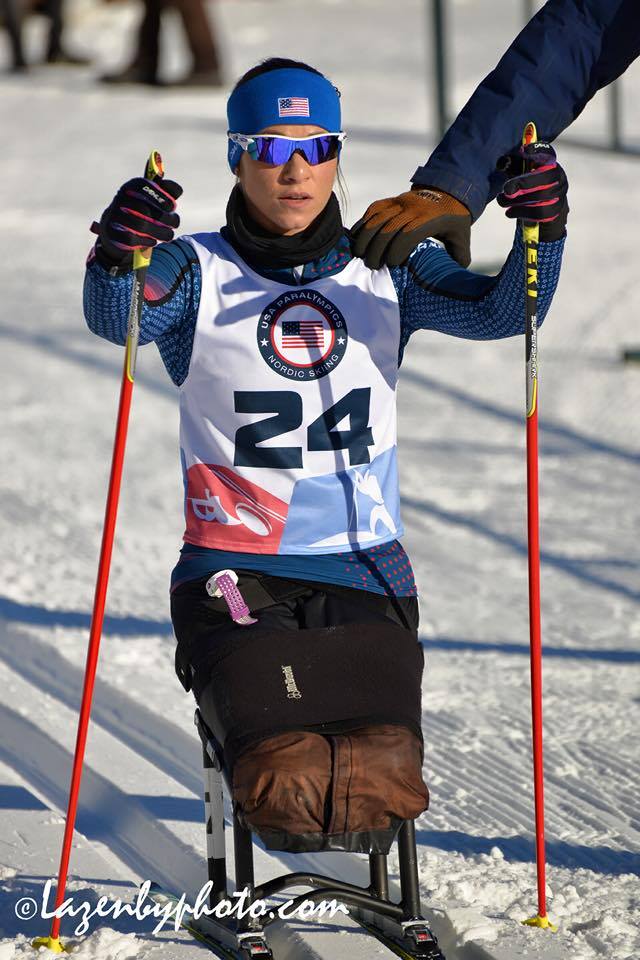
Nowadays, Masters trains for cycling in Champagne, Ill., as well as Colorado Springs, Colo., with her coach, Mike Creed, a U.S. Paralympic cycling coach, at the Colorado Olympic Training Center.
Undefeated in cross-country races last season and the two-time International Paralympic Committee (IPC) Overall World Cup champion, Masters remains on the U.S. Paralympic Nordic Skiing A-team and plans to compete this upcoming winter.
“I’m really excited to be cycling and to see what cycling can bring out for my skiing as well,” she said. “With this heat, I also cannot wait for winter.”
To prepare for skiing, Masters will work with U.S. Paralympic Nordic Head Coach Eileen Carey. Though the triple-sport Paralympian has spent most of her summer focusing on cycling, she said she’s excited to get back to skiing.
“The biggest challenge in athletes competing in multiple sports at a high level is being able to balance the calendar and making sure that they are able to have the opportunities they need to achieve their goals in both sports,” Carey wrote in an email to FasterSkier. “Based on what their individual goals are, we make big efforts to accommodate their schedules in other sports in a way that allows them to maximize their time on snow.”
According to Carey, for sit-skiers such as Masters and Tatyana McFadden and Aaron Pike (both also competing in Rio in wheelchair track and field), competing at a high level in multiple sports is a good thing.
“I think for sit skiers especially, doing two sports can work to their advantage,” she wrote. “There are so many possibilities of overuse injuries when you are using primarily your upper body. Doing a sport that uses a different motion can provide variety that I think is really important for both sports. We have seen Tatyana McFadden and Aaron Pike, who both compete in wheelchair racing, achieve personal bests in races just weeks after winter when they were doing no specific training in their racing chairs. There are certainly challenges in balancing two sports, but we see it as a competitive advantage and structure our program in that way.”
“Skiing, there’s a lot more to it than going hard, so cycling was kind of a way to stay in shape in the summer and learn more about racing. Then it just somehow led into going to Rio.” — Oksana Masters, 27, three-time U.S. Paralympian
After trials in June and early July in Charlotte, N.C., Masters was one of 18 athletes named to the U.S. Cycling Team for Rio. Team qualification involved a time trial in which both upright cyclists and handcyclists competed against each other — Masters a part of the handcycling group. With the time trial behind her, her goals for the Games are unfettered by the pressure to podium.
“I just want to finish with the pack,” she said. “I would love to bring home a medal and I totally believe that I can I would just be happy if I finished with the pack though. I’m not going to put the pressure of going for the gold right now.”
For Masters, it’s not so much the medal, but the opportunity to once again represent the U.S., this time in another new sport.
“I haven’t even had time to focus on what I’m looking forward to, just not getting my butt kicked,” Masters said. “It’s going to be a good challenge and I’m really looking forward to being able to represent the U.S. Paralympic team and to be able to represent it in more than one sport. I feel very, very, very humbled and thankful to have that opportunity and I’m really excited to show the versatility of any athlete.”
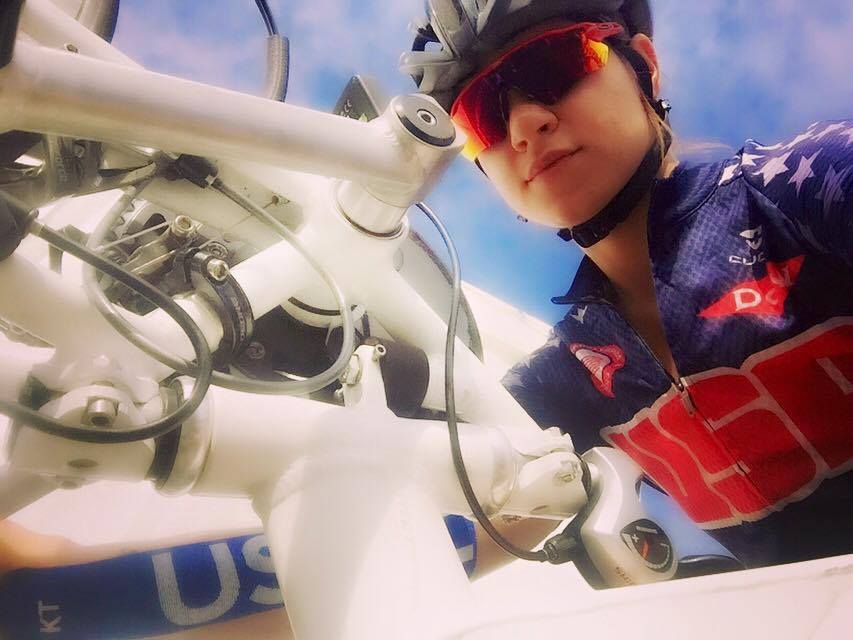
Gabby Naranja
Gabby Naranja considers herself a true Mainer, having grown up in the northern most part of the state playing hockey and roofing houses with her five brothers. She graduated from Bates College where she ran cross-country, track, and nordic skied. She spent this past winter in Europe and is currently in Montana enjoying all that the U.S. northwest has to offer.

